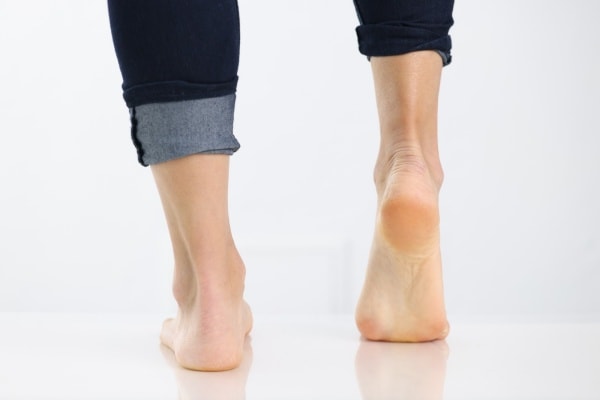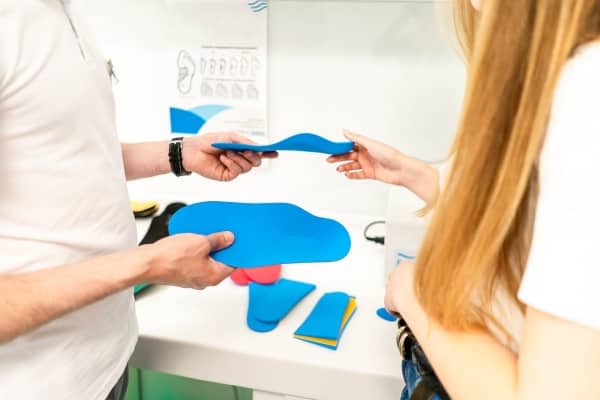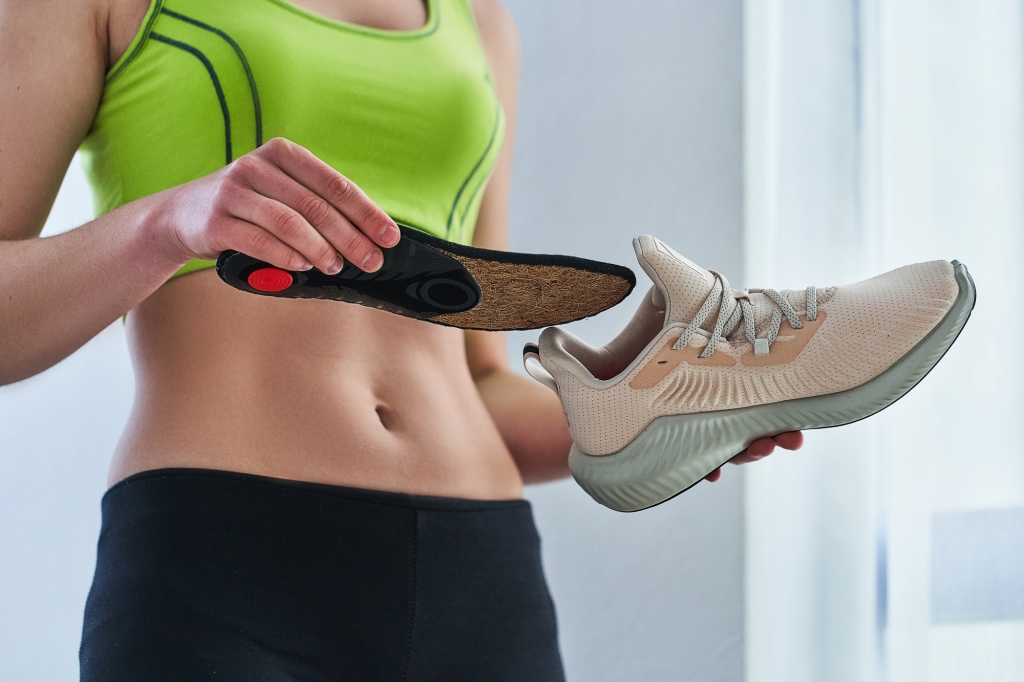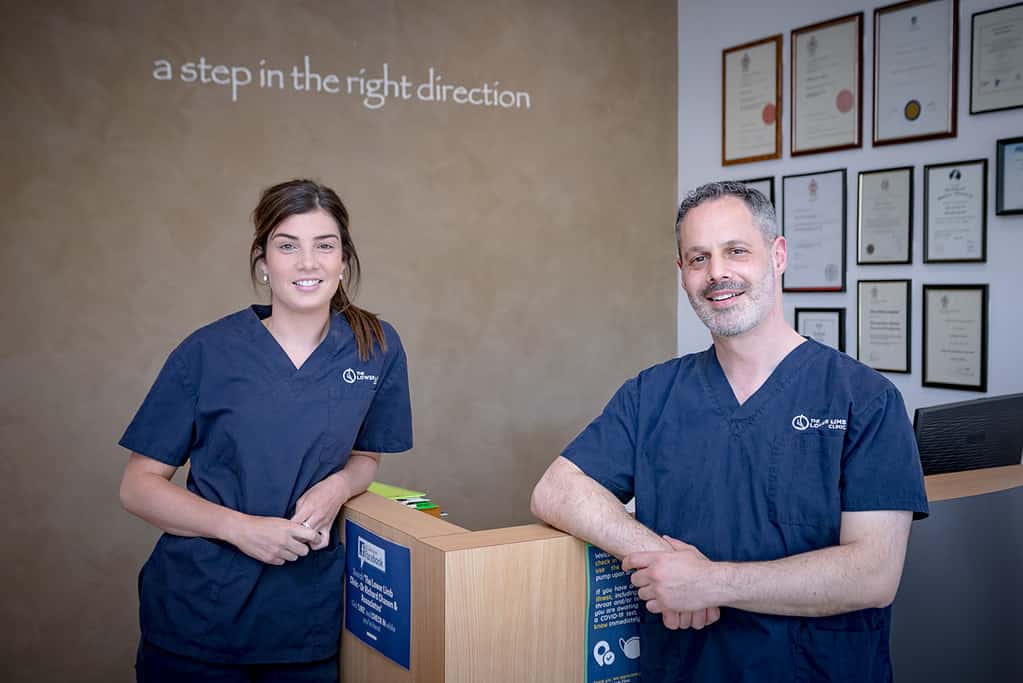
7 Signs You Need Orthotics
On any given day, an average Australian adult walks around 5,000 steps. That’s a lot of steps! Experiencing foot pain during or after simple everyday activities can seriously limit your ability to move around and make your day harder than it needs to be.
Luckily, there’s a solution in orthotics. They give support and take the pressure off painful areas of your feet – as long as you get the right ones. In this article, we’ll walk you through the common signs you might need custom orthotics and how they can help with different foot problems.
Common Signs You Need Orthotics
If you’re wondering if you need orthotics here are some signs to watch for:
- Foot pain that won’t go away – especially acute pain in the heels, arches, or balls of your feet.
- Changes in the way you walk, such as your foot rolling in or out too much (overpronation and underpronation).
- Frequent Ankle Sprains – which indicates your feet lack stability and may need extra support.
- Uneven Shoe Wear. Check your shoes. If one side wears out faster than the other it’s a sign your foot alignment is off.
- Leg, Knee or Back Pain. Problems in your feet can affect other parts of your body. Pain in your legs, knees or back with no clear cause could be related to your foot alignment which orthotics can improve.
- If your feet hurt or feel tired after standing for a long time, your feet might be telling you that they need extra support. Especially if this is a part of your job and there’s no way of avoiding standing for extended periods.
- Severe pain after or during physical activities such as running or playing sports is also a sign that your feet aren’t getting the support they need or are unstable.
If any of these signs sound like you, book an appointment to see a podiatrist for a full assessment and advice. Located in Elsternwick, Melbourne, The Lower Limb Clinic can help you find the best solution for your feet and get you comfortable and mobile.
Conditions Orthotics Can Help With

Orthotics can help relieve various conditions and general foot discomfort, providing cushioning and support for issues such as heel pain, lower back pain, and specific sports-related problems. They are also effective in preventing further pain or injury related to lower limb issues.
- Plantar Fasciitis: This is a common cause of heel pain, caused by inflammation of the plantar fascia – a band of tissue from your heel to your toes.
- Flat Feet: If you have fallen arches, very low arches, or little or no arch, you can feel pain and fatigue in your feet. Orthotics support your arches.
- High Arches: Just like flat feet, high arches can cause issues too. Orthotics cushion and distribute pressure more evenly.
- Bunions: These painful bumps at the base of your big toe can be eased with orthotics which will realign your joints and take pressure off the bunion.
- Hammertoes: Orthotics will relieve pressure on bent toes and support your foot which may slow the progression of this deformity.
- Achilles Tendinitis: Orthotics will reduce strain on your Achilles tendon by slightly raising your heel and treat and prevent this condition.
- Diabetic Neuropathy: For those with diabetes, orthotics are essential. They prevent injuries and ulcers by distributing pressure evenly across your feet.
- Arthritis: Rheumatoid arthritis or osteoarthritis, orthotics can take pressure off your joints and reduce pain.
- Overpronation or underpronation: If your ankles roll in or out too much when you walk, orthotics will provide the support to align your feet and reduce stress.
- Back, Hip or Knee Pain: Pain in your legs, knees, or hips can also be linked to the way your feet hit the ground. Joint pain and injuries from overuse often start from issues with your feet, which can be improved with the right orthotic support.
- You have to wear high heels: Wearing high heels, your weight shifts to the front, pressing down on the balls of your feet and toes. This pressure can cause discomfort and lead to problems like corns or calluses. Frequently wearing high heels may also lead to more severe issues, such as metatarsalgia (pain in the ball of the foot) or worsened plantar fasciitis.
What are Orthotics?

Orthotics are devices worn inside your shoes to support, align and improve the function of your feet. Orthotics work by changing the way your feet interact with the ground which improves function redistributes pressure away from those problem areas towards the parts of your foot that can handle it.
Orthotics come in many shapes and are made from various materials. You can buy prefabricated ones over the counter or custom-orthotics, usually through a podiatrist. There are also different types of orthotics, each designed for specific needs. For a full breakdown, read about the different kinds of foot orthotics here.
The Benefits of Wearing Orthotics

- Correcting Biomechanical Issues: Orthotics gently realign your bones, muscles, and tendons. This corrects the way you walk and stand, easing pain from flat feet, plantar fasciitis, and other foot issues.
- Reducing Strain and Pressure: Orthotics spread your weight evenly across your feet. This lessens strain on problem areas of your foot giving your body the space to heal naturally.
- Relieving Pain: Orthotics provide quick relief from foot pain. Conditions like arthritis, bunions, bursitis, heel spurs, and diabetes complications can cause severe foot pain. Orthotics help ease this pain.
- Improving Posture and Alignment: orthotics help maintain proper alignment which can prevents your foot from rolling too much, stabilise them during physical activity, and force better foot posture when standing for long periods.
- Enhancing Athletic Performance: Custom orthotics made for specific sports can improve your balance and reduce muscle fatigue. They help you perform better by evenly distributing your weight and absorbing shocks.
- Preventing Injuries: Orthotics reduce your risk of injuries like shin splints, stress fractures, plantar fasciitis, and knee pain.
- Improving Overall Health: By fixing biomechanical problems and giving extra support, orthotics relieve pain and help you move better, which improves your quality of life.
Custom Orthotics vs Off the Shelf Inserts

Benefits of Custom Orthotics
Custom orthotics have many benefits over off the shelf inserts. They are made to match your unique foot shape, biomechanics, and underlying conditions. That’s because we do a full biomechanical examination, gait analysis and joint evaluation before we even think about making the orthotics. After all, we need to know if you actually need them or if another treatment method would be a better option. We’d then take exact 3d impressions of your feet before heading to the lab to fabricate the orthotics. Because custom orthotics are designed and made just for you they are far more likely to address your specific foot issues, including severe pain, be more comfortable and more effective than something mass produced for the average foot.
When to Choose Off the Shelf Inserts
Off the shelf inserts can be a good option for mild foot discomfort. There are some good over the counter orthotics out there. They are cheaper and easier to get, but they still won’t give you the support and comfort that a custom orthoses can give. Over-the-counter orthotics, made of materials like gel, plastic, or foam, can provide cushioning and support for issues such as Achilles tendinitis or arch pain. And you’ll be crossing your fingers that your foot problem won’t get worse without addressing the underlying cause. Recommending off the shelf orthotics is beyond the scope of this article because it depends on the kind of foot condition you’re suffering from.
Don’t let foot pain slow you down

Knowing the signs you need orthotics is the first step to better foot health. If you are experiencing foot pain during or after simple everyday activities, it’s time to get assessed for orthotics. If you’re in Melbourne and need help with a lower limb condition, book a biomechanical assessment and gait analysis with The Lower Limb Clinic. New patients can get their assessment Gap-Free! But it’s limited to 3 spots per week so book early.
